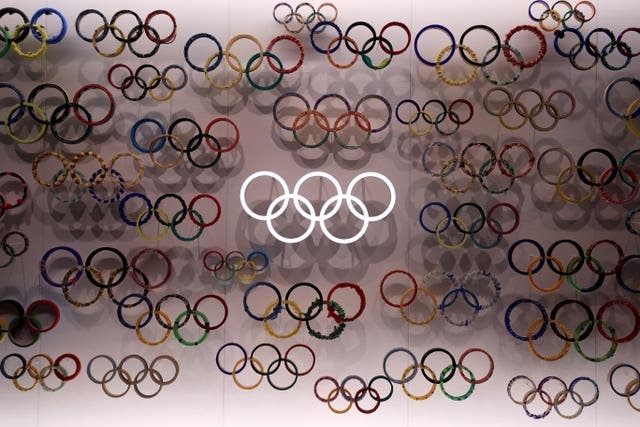Olympic Games organisers are still working on the basis that overseas spectators will be able to attend the event in Tokyo next summer, International Olympic Committee president Thomas Bach has said.
The Games were postponed by 12 months due to the coronavirus pandemic and are now scheduled to get under way on July 23 next year.
There remains a great deal of uncertainty around how many – if any – spectators will be able to watch the action in person due to social distancing measures, but Bach struck a confident tone in a press conference following the IOC's executive board meeting on Wednesday.

"We are working on the basis there will be international spectators," he said.
"Again, what we do not know is whether we can fill venues to full capacity or whether other measures would have to be applied.
"We saw a very encouraging start of some of the sports leagues in Japan with a good number of spectators and then we will have to see again with the additional tools we will have at our disposal next year how we can fill the stadia and how much we can fill the stadia."
Bach was not prepared to speculate on the prospect of the Games taking place behind closed doors, and pointed to the success of staging major sports events even amid growing evidence of a second wave of coronavirus infections worldwide.
"We will not speculate about what will be in 10 months from now, a third or fourth wave or fifth wave, whatever," he said.
"We are seeing that in the last couple of weeks, during this second wave which is obviously under way, that you can organise big and complex sporting events.
"We are always more confident that at the beginning of next year we can add to the tools for the Covid-19 counter-measures which we will have available.
"We can add new and even more reliable rapid tests and also a vaccine or vaccines may be available. And this makes both the organising committee and the IOC very, very confident about the opening ceremony on July 23 next year."

Olympic Games executive director Christophe Dubi said there was no deadline for a decision on whether overseas spectators could attend but said there would be more clarity by December.
More than 50 "simplification" measures have been taken to reduce the costs associated with the Games, with Tokyo 2020 organising committee chief executive Toshiro Muto saying they had so far worked out 30 billion Yen (just under £220million).
The format of the opening ceremony will not be touched though, Bach said.
"It is the showcase for the host country to show its perception of Olympic values and it is the opportunity for the athletes to march in the opening ceremony, belonging to their Olympic team," the German added.
We should maintain the format of the opening ceremony but the content might be adjusted in one way or the other. But we will not touch on the athletes' experience. – IOC Pt Bach #IOCEB #Tokyo2020
— Christian Klaue (@ChKlaue) October 7, 2020
"They are normally followed by more than one billion people around the world and that led to the joint decision with the organising committee that we should maintain the format of the ceremony, while the content may be adjusted one way or the other. This is first of all in the hands of the artistic director.
"We may have got a hint in the One Year To Go ceremony which was a very sober but still very emotional ceremony which was very well appreciated. If I was the artistic director I would look into this matter, but I should not give advice over the media."
The executive board rubber-stamped the timescales for the next IOC presidential election.
The new president will be chosen at the 137th IOC Session in spring next year, with the candidature deadline set for November 30, 2020.
The new presidential term will start the day after the closing ceremony of Tokyo 2020, the IOC confirmed.
/https%3A%2F%2Fsportsmole-media-prod.s3.gra.io.cloud.ovh.net%2F13%2F37%2Fthomas-bach.jpg)
/https%3A%2F%2Fsportsmole-media-prod.s3.gra.io.cloud.ovh.net%2F22%2F25%2Fnikita-mazepin.jpg)
/https%3A%2F%2Fsportsmole-media-prod.s3.gra.io.cloud.ovh.net%2F23%2F08%2Feilanh.jpg)
/https%3A%2F%2Fsportsmole-media-prod.s3.gra.io.cloud.ovh.net%2F22%2F51%2Flyu-xiaojun.jpg)
/https%3A%2F%2Fsportsmole-media-prod.s3.gra.io.cloud.ovh.net%2F25%2F22%2Fmohamed-salah.jpg)
/https%3A%2F%2Fsportsmole-media-prod.s3.gra.io.cloud.ovh.net%2F21%2F38%2Fanthony-joshua.jpg)
/https%3A%2F%2Fsportsmole-media-prod.s3.gra.io.cloud.ovh.net%2F21%2F39%2Fpsgmnc.jpg)